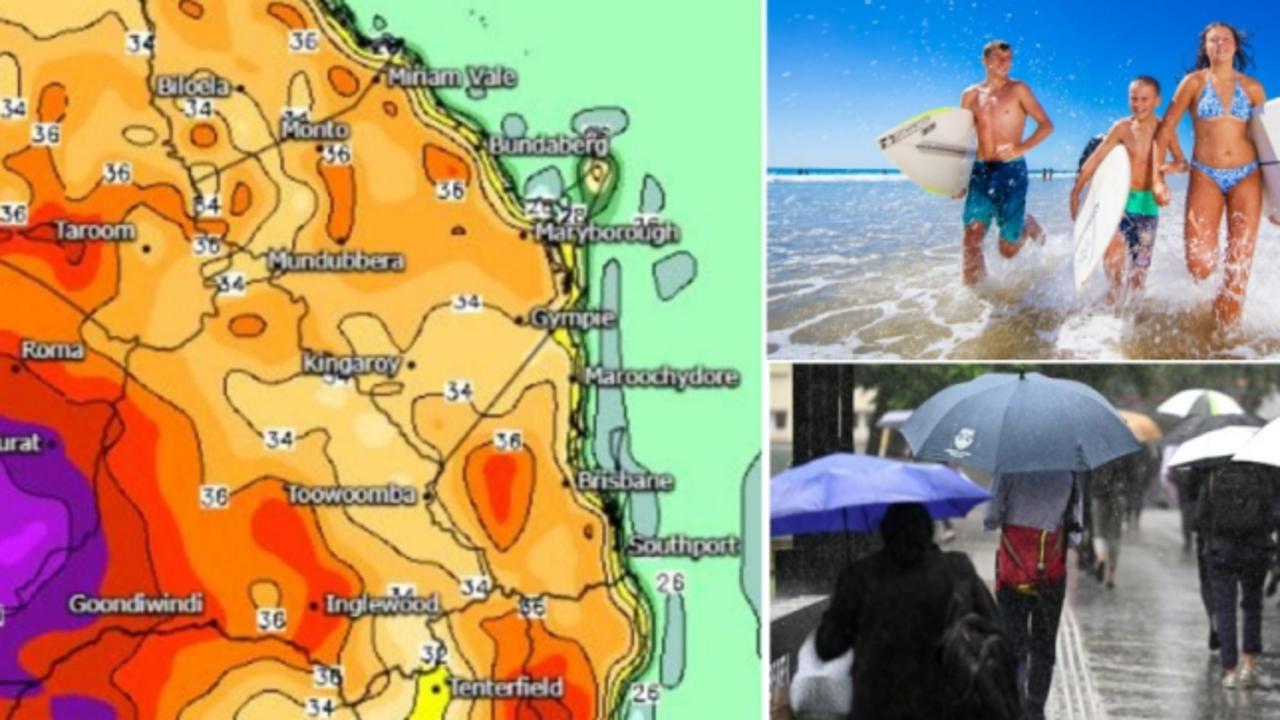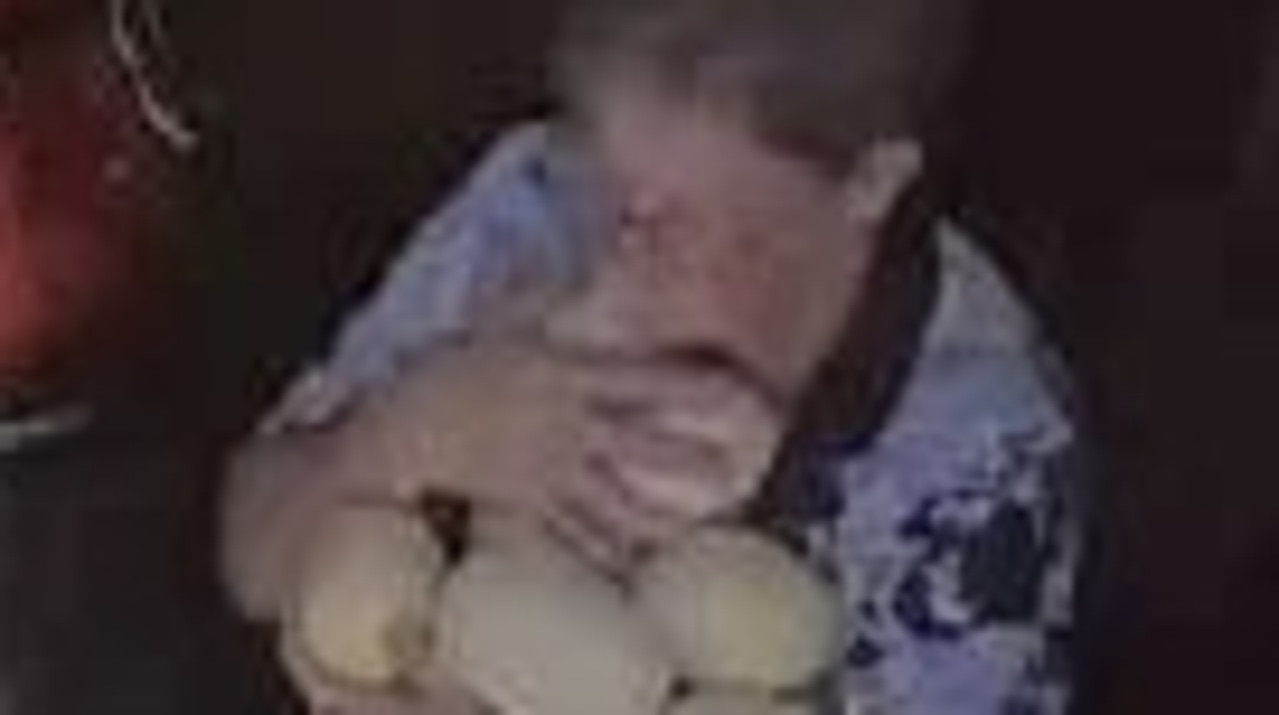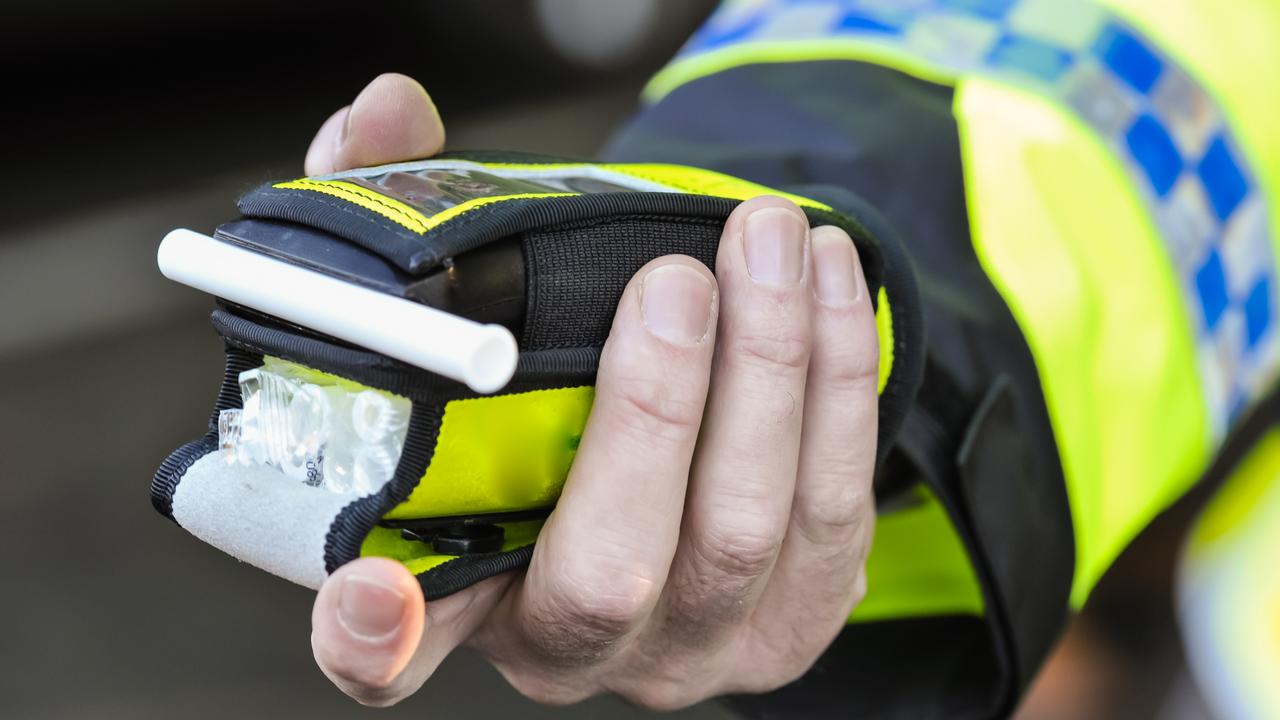Police lays blame for critically low morale on exploding domestic violence burden
New research has found 87 per cent of Queensland Police are suffering extreme burnout, with the bulk of that pain resulting from the weight of domestic violence investigations and the red tape that has bound our officers’ hands.
Toowoomba
Don't miss out on the headlines from Toowoomba. Followed categories will be added to My News.
Our front line police name domestic violence burnout and the demands of the internal review process as the main issues draining morale in the Queensland Police Service.
Throughout the past month, News Corp has surveyed dozens of police across all ranks and roles, and they routinely blamed the exponential growth in domestic violence as the main source of work stress.
The survey is backed by an enormous breadth of new research from Griffith University that found organisational stress was three times more likely to inflict a psychological injury on a QPS officer than responding to traumatic incidents, like fatal crashes or police shootings.
It found that up to 87 per cent of Queensland police are suffering extreme burnout, while 35 per cent reported psychological distress.
A key source of the stress is responding to voluminous DV call-outs, and then complying with what police have described as burdensome reviews into those investigations.
One officer in the Southern Region said that paperwork for call outs where police could not substantiate domestic violence took about 90 minutes to complete and required four different reports.
“On any given day 80 per cent of a shift will be spent doing paperwork justifying why a decision was made by investigating officers, those officers then have to get a supervisor to approve their actions,” he said.
“That justification is then given to another sergeant who reviews it and a recording of the interaction.
“The supervisor and officers’ actions then get reviewed by the DV unit.
“Requiring a total of more than six hours of officer time to complete and review each individual occurrence is a waste of resources and morale killer.
“You either trust investigating officers and supervisors to make decisions or you don’t.”
The review process was brought in after the 2022 independent Commission on Inquiry into the QPS response to domestic violence.
The commission found there were significant failures to identify instances of domestic violence that ultimately led to women dying at the hands of an intimate partner.
It made some 78 recommendations which the Palaszczuk Government committed an extra $100 million to implement.

Judge Deborah Richards led the inquiry and found there were serious cultural issues within the QPS that reduced its ability to police domestic violence, including unchecked misogyny, sexism and racism.
“There is evidence that there is a lack of understanding of the dynamics of, and power imbalance within domestically violent relationships,” she said.
“There is evidence that there is significant under-resourcing which leads to reactive and at times short-lived reform and, in the frontline, confusion over expectations of performance.
While many of the police surveyed said the commission was necessary and admitted there were failings, they added that the review process was an overcorrection, politically motivated and did not take into account how the recommendation would affect the already strained workforce.”
Officers responding to the News Corp survey said every domestic violence call-out was being treated as a potential murder, with QPS dictating that officers run through an exhaustive questionnaire often despite the wishes of the aggrieved party.
“The whole domestic violence issue has now become so muddied and so broad it’s actually lost all meaning,” one South Eastern Region officer said.
“Everything is now referred to as domestic violence which actually undermines and fails people that actually need help by taking police away from them, lowering response times and watering down the issue as a whole.”
“The domestic violence policy has taken a very politically correct context and is not driven by the QPS,” A Northern Region officer said.
“Police going to domestic violence calls are frightened to make decisions, and victims don’t necessarily want to be dragged through a police process.
“With the review process, we have as much more resources going into reviewing investigations than actually responding to domestic violence.”
Work stress saps service strength
The burnout from what has been described as an “overcorrection” that police have reported to News Corp is backed up by data from a recent Griffith University study that interviewed 1700 police across Queensland.

The study’s author Dr Jacqueline Drew spent 10 years working as psychologist within the QPS and made a submission to the Commission of Inquiry.
She said the service, and the state government by extension, should look at how the review process was implemented.
“We need to assess whether what is being done is actually the right level of scrutiny and administration,” Dr Drew said.
“For policing strategies generally, we can theoretically design them in a lab and they can seem perfect, then we forget the humans who have to implement it.
“Our police are not machines.
“Given the fact that we are hearing this consistently from the police, it takes pause to ask if it is working from a human perspective.”
The review process was implemented at a time when the QPS was in the throes of significant staff shortages.
While some progress has been made putting more boots on the ground, Dr Drew said the review process and domestic violence rate had exacerbated work stress within the rank and file.
Part of this stress relates to organisational justice, where staff fear they won’t be treated fairly by their employer if there is a review of their work.
Dr Drew said her research found that organisation stress was almost three times more likely to inflict a psychological injury on Queensland police officers than attending traumatic incidents, like fatal traffic crashes or murder scenes.
According to data from Work Safe Australia, personal injury claims for psychological injuries out number claims for physical injury, leading staff to take more time off work for what are preventable injuries.
In 2019 there were 101 claims. By 2023 that number rose to 254 and recent estimates from the Queensland Police Union suggest a 125 per cent rise will be reported this year.
“Of course trauma causes psychological harm, but we have relied too heavily on thinking that was the only cause,” Dr Drew said.
“Organisational factors are exacerbating trauma and they interfere with police recovering from trauma.
“Police feel that if they do the wrong thing they would be left out dry.
“The things that cause the most burnout and stress are things that are created inside the organisation. They are the creation of leaders and politicians”
More staff needed

At the commission of inquiry’s closure in November 2022 Police Minister Mark Ryan said it would take an extra 1000 staff to implement its recommendations.
“These extra numbers will be in addition to the more than 2,000 extra police personnel the government is already delivering,” he said.
While the QPS has introduced a range of incentives to boost recruitment, the current staff have been spread thin to satisfy the review requirements.
Griffith University Professor Silke Meyer has been researching the QPS response to domestic violence said a more nuanced approach was needed.
While some households can come into contact with police as a one-off occurrence, in other scenarios there may be longstanding unreported issues, or households where the police are there every week.
“Not all domestic violence is a criminal justice issue, but the victims still need support, planning and risk management,” Dr Meyer said.

“For some the police intervention is a circuit breaker, for others the victim may not trust police, or they have not called police in the first place.
“In an under-resourced environment, everyone is time poor, knowing when you are at one job there is another waiting.
“There are only so many things you can attend to and the police have to capture everything and document everything.
“Officers need the time and space to explore a situation.”
One solution that is being trialled in Far North Queensland and Logan is a co-responder model, where police team up with social workers, similar to what is done with youth crime and mental health call-outs.
Dr Silke said the co-responders model would allow police to focus on the investigation.
“Domestic violence specialists and police have recognised for the past decade that a co-responder model would take some of the pressure off front line police,” she said.
“While we have had this recognition for a long time, from a government funding perspective we have not seen the investment in co-responder models that the social work and policing sector has argued for.”
The Queensland Police Union has warned action must be taken to address DV burnout, or the QPS risks losing veteran staff.
Originally published as Police lays blame for critically low morale on exploding domestic violence burden







